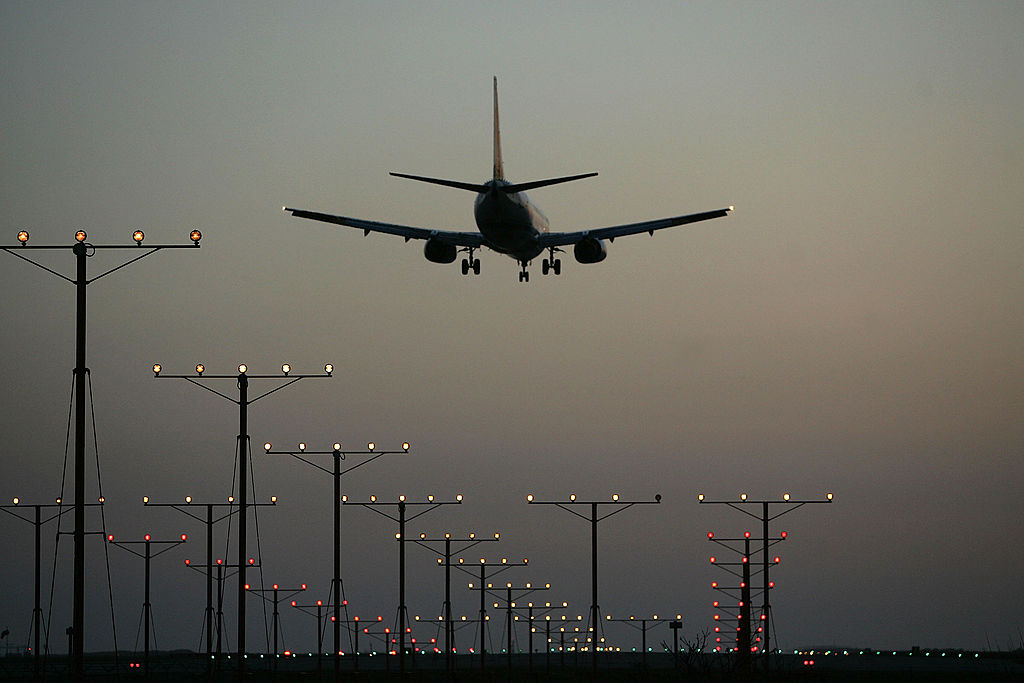As air travel is getting back to pre-pandemic levels and airports are getting busy, travelers are still having to mask.
While many public areas are getting more lax about masks, the Dallas Love Field airport now has robots watching travelers.
“Yes, those 7-foot-tall machines at Dallas Love Field are watching you. They want to make sure you’re wearing a mask if you’re boarding a flight or not parking too long at the curb if you’re picking up a returning traveler,” The Dallas Morning News reported Friday.
The Love Field airport is testing two Security Control Observation Towers to see if robotic assistants can help passengers and also keep those in check who are breaking any rules.
The robots are placed near baggage claim and security checkpoints in the airport.
They can even notify law enforcement of potential crimes.
Love Field is not the first airport in Texas to make a go of it with robots.
In Houston, at the George Bush Intercontinental/Houston Airport and William P. Hobby Airport, there were six robots roaming around to disinfect areas, Dallas Culture Map reported.
The Houston Airport System spent close to $1 million for those six robots to go around cleaning surfaces like tables, chairs, doorknobs and keyboards.
Airports are trying to find more innovative ways to make travel safer, both from a security and health standpoint.
“With the onset of the pandemic, we needed to explore new and innovative solutions so that when people come through the airports, whether for work or travel, they feel safe and secure,” Sam Rea, terminal manager at George Bush Intercontinental, said in a March 8 press release.
At Love field, the machines are nicknamed SCOT (Security Control Observation Towers) and were put into Love Field a month ago to “determine if they are capable of efficiently supplementing current airport operations,” Love Field spokeswoman Lauren Rounds told The Dallas Morning News.
Instead of looking like futuristic and rolling around the airport like R2-D2, SCOT looks similar to other airport kiosks.
With a touch screen for information, maps, directions and more, SCOT is meant to help passengers.
But the machines are also able to detect whether airport patrons are breaking rules, such as the federal mask mandate that’s in effect until April 18, The Dallas Morning News reported.
Adam Schwartz, an attorney for digital privacy rights group Electronic Frontier Foundation, told the newspaper that the use of the robots “raises questions.”
“It is concerning that an airport has installed a new system of artificial intelligence,” Schwartz said. “It raises a lot of questions about what that technology is doing.”
This article appeared originally on The Western Journal.

























 Continue with Google
Continue with Google